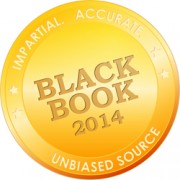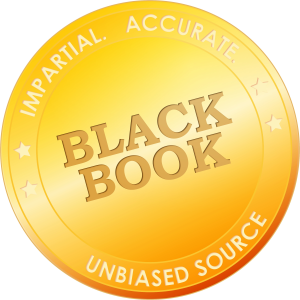CFOs Stress Need for Next Generation RCM Tools but Hefty MU Investments Deplete Many Hospital’s Cash Reserves, Black Book Survey Reports

New York, NY , November 2, 2014 (Newswire.com) - The technology rift between highly capitalized hospitals and financially struggling hospitals grows wider. The have-nots (40% of CFOs) declare their hospitals so financially stretched due to misjudged EHR, HIE and patient portal expenses, that they are forced to postpone revenue cycle management software transformations until 2016.
94% of the surveyed hospital CFOs self-identified as “struggling”, report that delayed or failed implementations in other IT systems, particularly EHR, have drastically impacted the organization’s financial position.
However, the haves (41% of CFOs) in fiscally healthier hospitals say their facilities are moving full steam ahead with next generation RCM tools and preparing for the switch to new payment risk models based on improving patient compliance and population health management. 91% of these surveyed hospital leaders have either fully committed to next generation revenue cycle management, currently have implementations underway, or plan on either outsourcing or purchasing new RCM software by Q3 2015.
Despite widespread dissatisfaction towards electronic health records and reputation for being a big driver of costs, financially secure healthcare organizations are pushing ahead with investments in RCM and analytics foreseeing the 2016 return on investment.
“Most hospitals have no choice but to look for next generation RCM solutions in order to keep their organizations solvent,” said Doug Brown, Managing Partner of Black Book. “Increased self-pay volumes, lack of pricing transparency, no patient financial responsibility/estimation technology, and other reimbursement challenges are driving many marginally performing healthcare organizations to the brink.”
In a series of eight research reports on the 2014 State of the Revenue Cycle Management industry, Black Book™ is releasing comprehensive findings of IT and services users on the trends and directions of hospitals, chains, and physician practices. The top ranked vendors in customer satisfaction and client experience among RCM software and outsourcing services providers, as well as RCM transformation consultants are announced in November.
The latest RCM studies released today are the "Top Hospital Software Vendors, Revenue Cycle Management: Small/Rural and Community Hospitals under 250 Beds", and “Top Hospital Software Vendors, Revenue Cycle Management: Hospitals over 250 Beds, Hospital Chains and Networks". Both research sets provide analysis on the replacement RCM market as healthcare systems strategize the upgrades to patient billing and collection processes.
According to Black Book™, the $2.8 billion hospital RCM software and services industry grew 13% since Q3 2013 because of business shifts, reimbursement and payment reforms, accountable care participation, ICD-10 coding challenges, physician practice acquisitions, pricing transparency, self-pay collection issues, and overall declining margins.
Over 2,300 respective hospital CFOs, CIOs, business office managers, technology and financial staffers contributed their perceptions to Black Book™ between June and October 2014. Additionally, the business managers of 1,600 physician practices affiliated or owned by hospital systems submitted ballots.
590 hospital and inpatient organizations from 45 states were represented in the survey.
“Hospital viability has never been more thoroughly secured to a single organizational venture as revenue cycle management transformation,” said Brown. “And chief financial officers in struggling hospitals are in a very perilous position as the risk models are still being charted while limited funds remain for next generation RCM tools.”
Adding the CFOs woes are the proliferation of high-deductible health plans, larger co-pays, and consistently high numbers of uninsured patients. With 57% of surveyed hospital’s bad debt currently coming from outstanding patient balances, 91% of business office managers are on the hunt for complex patient estimation software that involves insurance verification, covered services, covered providers, benefit structures, and pricing transparency. 99% of hospital business office managers surveyed agree that determining and collecting patient liability not only affects the hospital’s financial soundness, it also positively impacts patient satisfaction.
Struggling hospital CFOs and business executives are feeling the pressure of the approaching payment reforms and lacking the organizational resources to oversee a full RCM transformation. 61% of hospital CFOs and business managers in struggling hospitals already expect to be fired by 2016 because their RCM software, staff, and solutions were powerlessly stuck in fee for service mode too long.
35% of CFOs in “struggling hospitals” suspect the industry swing to replacing chief executives from outside the healthcare ranks will also affect their tenure should their facilities continue in this spiral.
“Most hospital CFOs have no choice but to leverage next generation RCM solutions in order to keep their organizations solvent,” said Brown. “The reimbursement challenges ahead to get paid may require several new RCM applications, and the blunt realities that Black Book warned of from the 2014 surveys are showing signs of occurring… failing RCM systems will close marginally performing hospitals for good and will get CFOs fired.”
86% of CFOs self-identified from a “struggling financially” hospital believe they must leverage next generation financial system technologies, including software and outsourced services, to keep solvent.
84% of “negative margin hospitals” are investing in population health, analytics, complex pricing estimation solutions, and RCM “on hold” until at least 2016, in order to fund improvements in surgical and diagnostic patient services, as well as complete patient engagement and EHR implementations.
Black Book™ also announced the top performing RCM software vendors as ranked by customer satisfaction on eighteen client experience-based key performance indicators.
McKesson RelayHealth, ranked first in RCM software customer satisfaction and client experience among small/rural and community hospitals under 250 beds. Other highly rated end-to-end RCM vendors are: ZirMed, Emdeon, MedAssets, Siemens, Optum, GE Healthcare, Allscripts, Greenway, App Rev, and Availity.
Zirmed, rated #1 for large hospital hospitals and academic medical centers over 250 beds for comprehensive RCM, as well as #1 RCM software system for Hospital Systems, Chains, and IDNs. Other top performing ranked large organization RCM software vendors included: Optum, McKesson Relay Health, Emdeon, MedAssets, Siemens, Cerner, Passport Health, Craneware, Infor, Quadramed, 3M, Revenue360, Epic Systems, SSI Group, and GE Healthcare.
OTHER KEY CFO & FINANCIAL MANAGER RESPONDENT FINDINGS
47% of hospital (under 250 beds) CFOs do not intend to let the facility’s legacy clinical system have bearing on their RCM product/system buying decision. 93% of large hospital CFOs do not consider their clinical system vendor to have any influence or advantage over other RCM vendors in the vendor selection process.
73% of all surveyed CFOs feel the pressure to make a complex RCM product decision without adequate capital for best-of-breed RCM, is a threat to their long term job stability.
28% of small and community hospital CFOs feel they will lose their jobs in 2016 regardless of the RCM choices they make in the next 12 months. 11% of CFOs in hospitals and academic medical centers over 250 beds also agree with that prophecy.
87% of small and community hospitals anticipate declining-to-negative profitability through 2015 due to diminishing reimbursements, unrecovered collections, and underutilized or inefficient billing and records technology. 21% of large hospitals and hospital systems share these concerns.
About Black Book™
Black Book Rankings, a division of Black Book Market Research LLC, provides healthcare IT users, media, investors, analysts, quality minded vendors, and prospective software system buyers, pharmaceutical manufacturers, and other interested sectors of the clinical technology industry with comprehensive comparison data of the industry's top respected and competitively performing technology vendors.
The largest user opinion poll of its kind in healthcare IT, Black Book™ collects over 600,000 viewpoints on information technology and outsourced services vendor performance annually. For methodology, auditing, resources, comprehensive research and ranking data see http://www.blackbookmarketresearch.com
